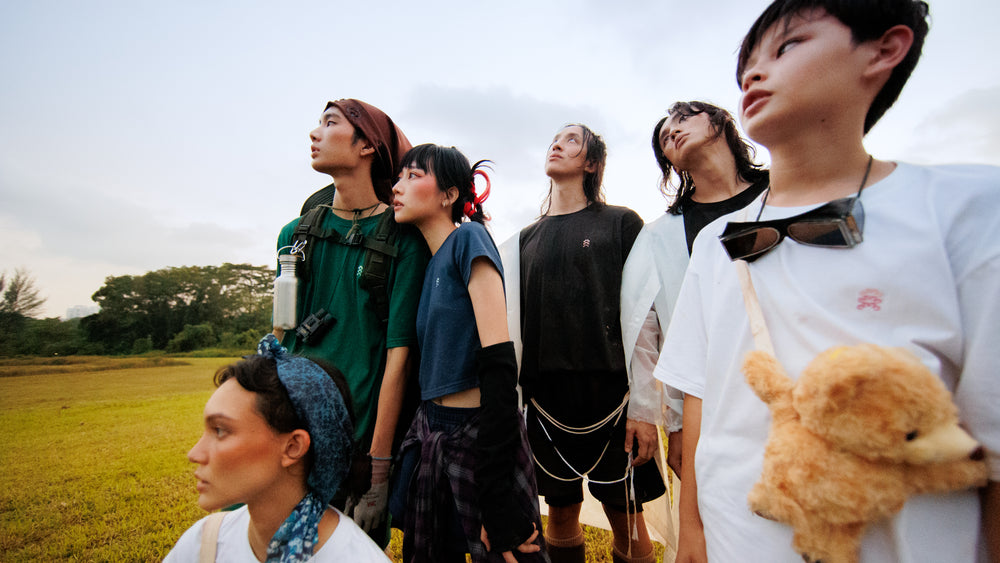
Planet
Wildlife
Community




We teamed up with One Tree Planted for our reforestation efforts in some of the harshest places in Asia, including the Philippines, Indonesia, India and Vietnam.

choice to purchase

Earthkind, a tree will be planted
by

partners,

With our Packaging
At Earthkind, we realise the adverse impact of plastic packaging on our Earth’s ecosystems, on which we depend.
Any unnecessary packaging is eliminated, while all our packaging is made from recycled materials (not taking any more resources from the planet) and sustainably managed production cycles.

To achieve our goal of carbon neutrality, we are always looking for ways to improve ourselves in terms of logistics and packaging.
Of the seventeen UN SDGs, Earthkind is proud to be a driving force of the following goals:








Organic

Fair Labour

Vegan

Give back

Recycled

Artisanal

Non-toxic

Supply chain transparency

Zero waste

Synthetic-free



Our evaluation is backed by certifications and accreditations by reliable third-party institutions, ensuring that brands are held accountable while complying with the highest industry standards.

We prioritise our Mother Earth’s health, considering resource and energy use, waste management, chemical use, carbon emissions and impacts on water and air.
Fashion and our perception of it makes a drastic impact on the environment. While we may see finished products in the racks and shelves of fast fashion retailers, a garment's life cycle comes at a considerable cost to the environment.
“The fashion industry is responsible for 10% of carbon emissions” (UN Environment, 2018)
We believe actions speak louder than words and strive for continuous improvement and long-term commitment.
Adopting a holistic approach to sustainability is necessary to tackle the environmental and social issues facing the fashion industry today. We prioritise brands who consider different aspects to do business while serving the planet and community.
“BECAUSE OF OVERPRODUCTION IN THE FASHION INDUSTRY, 12.8 MILLION TONS OF CLOTHING GO TO LANDFILLS EVERY YEAR” (ENVIRONMENTAL PROTECTION AGENCY, 2018)
We favour durable materials that do no harm to the people, planet and animal. #WhatsInMyClothes
The production of raw materials contributes to 79% of the total greenhouse gas emissions from the fashion industry. To nip it in the bud, we seek for natural, organic, recycled and innovative fibres instead of synthetics.
“COTTON IS THE THIRSTIEST CROP ON THE PLANET, NEEDING 9.7 LITRES OF WATER FOR 1KG OF FIBRE. THE FARMING OF COTTON ALSO ACCOUNTS FOR 25% OF GLOBAL PESTICIDES USE.”
We strive for full supply chain transparency, tracing every product from its farm to factory to shelf.
Radical transparency is the number one priority to eliminate issues such as human rights violation and unethical business practices. Brands are often reluctant to disclose information on their supply chain to hide the poverty wages and water pollution that they are associated with.
“93% OF FASHION BRANDS DON’T PAY A LIVING WAGE.” (CLEAN CLOTHES CAMPAIGN, 2020)
We respect the people who made our clothes and strive to improve their quality of life. #WHOMADEMYCLOTHES
The fashion industry employs one out of six people on earth, yet only 2% of all garment workers earn a living wage. Most of the production facilities of fast fashion brands are located in emerging or developing nations that are not as strictly regulated, resulting in unfair exploitation of (mostly women) workers.
“170 MILLION CHILDREN ARE EMPLOYED IN THE GARMENT INDUSTRY, MOST OF WHICH WORK IN HAZARDOUS ENVIRONMENTS.” (UNICEF, 2020)







